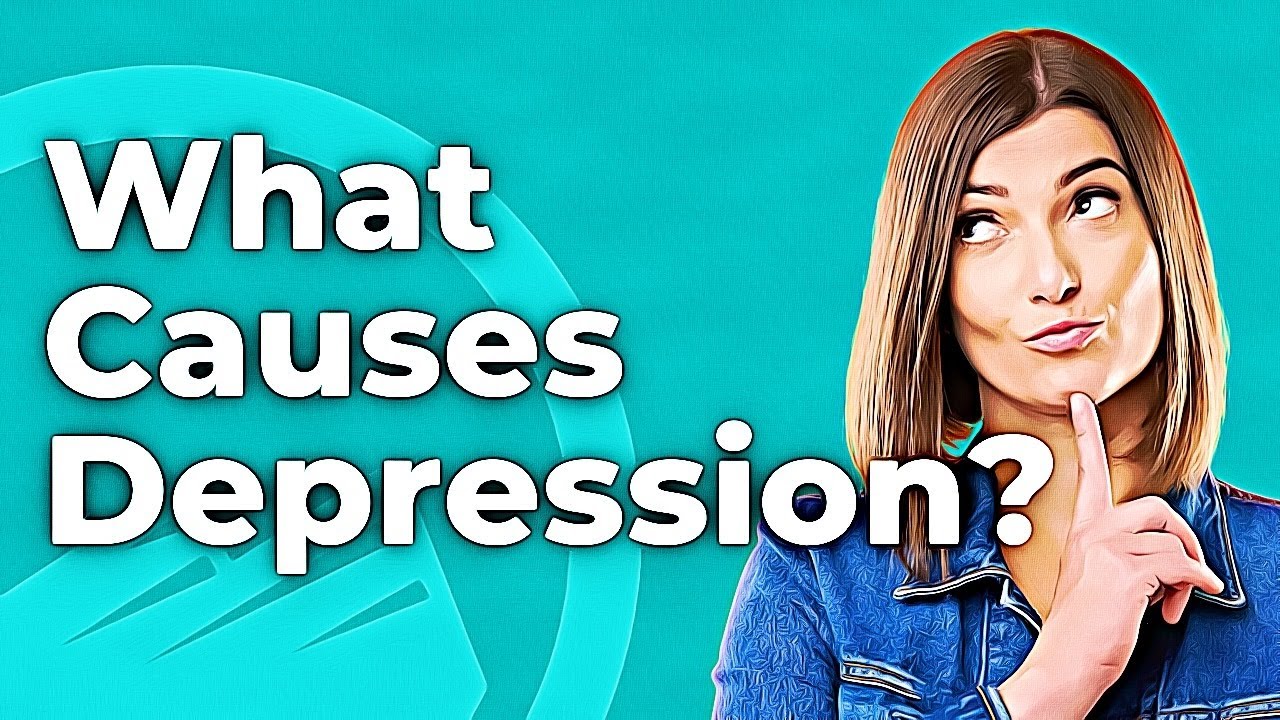What causes depression, and is depression always caused by something?
For support with substance use and mental health download our FREE Parent Resouce Guide👇
https://sandstone.formstack.com/forms/parent_guide
Learn more about depression, trauma, and anxiety👇
https://www.sandstonecare.com/mental-health/denver
For substance use or mental health support for teens and young adults call (855) 958-5511 or live chat with us at https://www.sandstonecare.com/
What is Depression?
Depression goes further than just feeling sad. It’s a mental illness that affects the way you think, feel and act. It causes you to persistently feel blue or numb, and it hinders your ability to live a normal life. Though there are different levels of severity, it usually includes symptoms such as feelings of sadness or worthlessness, a loss of interest in your normal activities and general lethargy. You might also experience a dramatic change in eating or sleeping patterns – that is, significantly more or less of either of these activities. The good news is that depression is treatable. Many people who struggle with depression have recovered and have gone on to live happy, successful lives.
Risk Factors for Depression
Risk Factors for Depression
Depression is one of the most common mental illnesses in the world. A recent survey by the National Institute of Mental Health shows that nearly 7 percent of American adults had an episode of depression in the previous year. But depression is an even more serious problem for young adults than for other adults. The same survey found that the age range with the highest prevalence of depression was young adults – at nearly 11 percent. That’s one out of every 10 young adults.
So what causes depression? Researchers aren’t sure, but they have identified several factors that make certain people more likely to suffer from it.
Genetics -If you have a parent or sibling who has suffered from depression, your risk of depression is higher.
Chemical or hormonal imbalances -Imbalances in brain chemicals or hormones can cause you to become depressed.
Seasons -Some people are more likely to become depressed in winter, when days are shortest and there’s less sunlight.
Nutrition -When you don’t get enough of certain nutrients, you’re more likely to become depressed.
Gender -Women are more likely to struggle with depression than men.
Symptoms of Depression
Everyone feels sad from time to time, but if any of the following symptoms remain persistent, you may be depressed:
Anxiety
Feelings of sadness or worthlessness
Unwarranted irritation or anger
Lethargy, fatigue, lack of energy
Difficulties with concentration, memory or decision-making
Inexplicable aches, pains, headaches or stomach problems
Inability to sleep
Sleeping much more than usual
Lack of appetite
Inordinately high appetite; weight gain
Thoughts of self-harm or suicide
Depression and Relationships
People with depression can find it more challenging to find satisfaction in their relationships, as they may struggle with insecurities and lack the fully developed problem-solving skills necessary to work through relationship conflicts in constructive ways. They may feel moody, irritable or feel like no one understands them, leading to even more withdrawal and isolation. If these issues aren’t sorted out earlier on, it’s also easy to carry them into adulthood.
People are social beings, and maintaining meaningful relationships with others is an essential facet of the human experience. Carrying out healthy romantic partnerships is an important skill to develop in young adulthood – which is why diagnosing and learning to manage depression in a relationship context is so beneficial for young people.
Depression in College
Heading off to college is an exciting time to be sure, but it’s not without its share of challenges: some students find themselves struggling emotionally as they learn to juggle their workload, balance a budget and get along with new roommates, all while being away from home for the first time. While it’s totally normal for this new set of challenges to cause stress during a transitional phase, it can sometimes progress beyond the occasional university blues and develop into symptoms of depression.
If you struggle with depression, take this into account when planning your college experience. Visit the campus beforehand to familiarize yourself with it. Identify available support systems like student groups and counseling resources, and proactively seek out ways to make friends and get involved in campus life to minimize your sense of isolation.
#addictionhelp
#Mentalhealthpodcast
#Sobertribe
source
